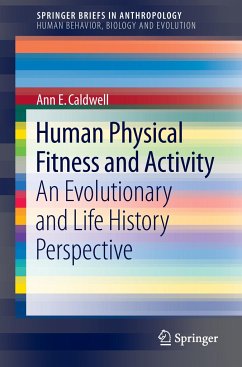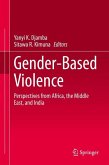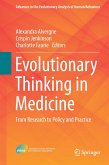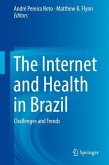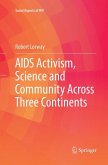The science of human physical activity and fitness is ripefor a novel theoretical framework that can integrate the ecological, genetic,physiological and psychological factors that influence physical activity inhumans. Physical inactivity dominates most developed nations around theworld, and is among the leading causes of disease burden and death worldwide. Despitethe wide array of physical and mental health benefits, few people get therecommended level of physical activity to achieve these benefits. Currentresearch on physical activity has not, as of yet, been successful for thedevelopment of effective exercise interventions. Several researchers haveadvocated a more integrative approach that takes evolutionary history intoaccount, but such a framework has yet to be advanced. To that aim, the firstgoal of this book is to present a comprehensive evolutionary and life historyframework that highlights the domain-specific aspects of the evolved psychologyand physiology that can lead to a more integrated and complete understanding ofphysical activity across the lifespan. It summarizes and extends previous workthat has been done to understand the ways natural selection has shaped physicalactivity in humans in traditional and modern economies and environments. In many ways, humans are adaptedto be physically active. Overall, however, natural selection has shaped aflexible, but energy conscious system that responds to environmental andindividual costs and benefits of physical activity to optimally allocate afinite energetic budget across the lifespan. This system is adapted to respondto cues of resource scarcity and high levels of obligatory physical activity, andconserves energy to favor allocation in ways that increase the likelihood ofreproductive success and survival. This nuanced application leads to a morethorough understanding of the circumstances that natural selection is predictedto favor both sedentary and active behaviors in predictable ways across thelifespan.
The second goal of this book is to synthesizeand interpret cross-disciplinary research (from biological and evolutionaryanthropology and psychology; epidemiology; health psychology; and exercisephysiology) that can illuminate original approaches to increase physicalactivity in modern, primarily sedentary contexts. This includes a breakdown ofthe human lifespan to discuss the predicted costs and benefits of physicalactivity at each stage of life in order to differentiate the obstacles tophysical activity and exercise that are functionally adaptive-or were in theenvironments that they evolved-and identifying which factors are moremodifiable than others in order to develop interventions and environments thatare more conducive to physical activity. Normal 0 false false false EN-US JA X-NONE /_ Style Definitions _/ table.MsoNormalTable{mso-style-name:"Table Normal";mso-tstyle-rowband-size:0;mso-tstyle-colband-size:0;mso-style-noshow:yes;mso-style-priority:99;mso-style-parent:"";mso-padding-alt:0in 5.4pt 0in 5.4pt;mso-para-margin-top:0in;mso-para-margin-right:0in;mso-para-margin-bottom:10.0pt;mso-para-margin-left:0in;line-height:115%;mso-pagination:widow-orphan;font-size:11.0pt;font-family:"Calibri","sans-serif";mso-ascii-font-family:Calibri;mso-ascii-theme-font:minor-latin;mso-hansi-font-family:Calibri;mso-hansi-theme-font:minor-latin;mso-bidi-font-family:"Times New Roman";mso-bidi
The second goal of this book is to synthesizeand interpret cross-disciplinary research (from biological and evolutionaryanthropology and psychology; epidemiology; health psychology; and exercisephysiology) that can illuminate original approaches to increase physicalactivity in modern, primarily sedentary contexts. This includes a breakdown ofthe human lifespan to discuss the predicted costs and benefits of physicalactivity at each stage of life in order to differentiate the obstacles tophysical activity and exercise that are functionally adaptive-or were in theenvironments that they evolved-and identifying which factors are moremodifiable than others in order to develop interventions and environments thatare more conducive to physical activity. Normal 0 false false false EN-US JA X-NONE /_ Style Definitions _/ table.MsoNormalTable{mso-style-name:"Table Normal";mso-tstyle-rowband-size:0;mso-tstyle-colband-size:0;mso-style-noshow:yes;mso-style-priority:99;mso-style-parent:"";mso-padding-alt:0in 5.4pt 0in 5.4pt;mso-para-margin-top:0in;mso-para-margin-right:0in;mso-para-margin-bottom:10.0pt;mso-para-margin-left:0in;line-height:115%;mso-pagination:widow-orphan;font-size:11.0pt;font-family:"Calibri","sans-serif";mso-ascii-font-family:Calibri;mso-ascii-theme-font:minor-latin;mso-hansi-font-family:Calibri;mso-hansi-theme-font:minor-latin;mso-bidi-font-family:"Times New Roman";mso-bidi

